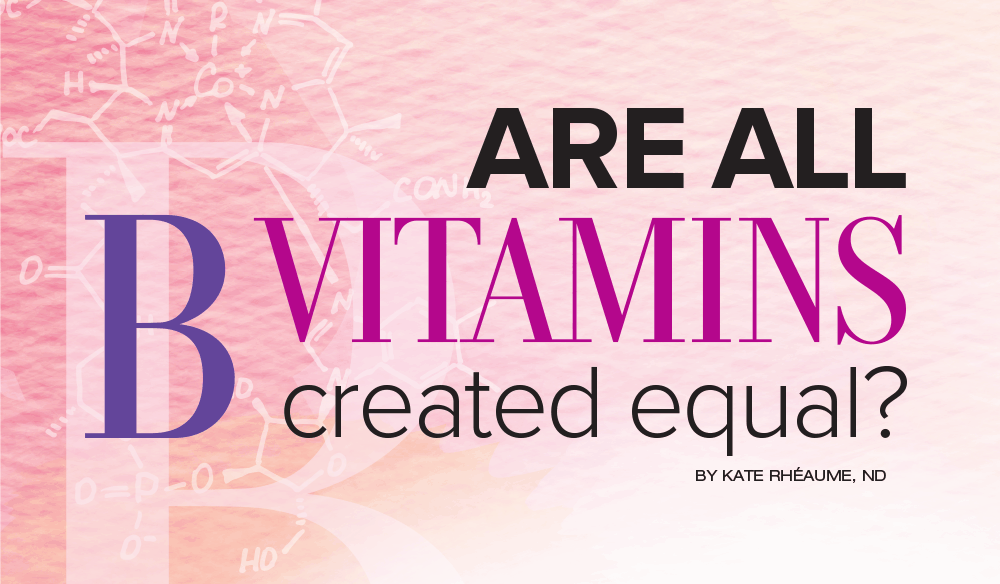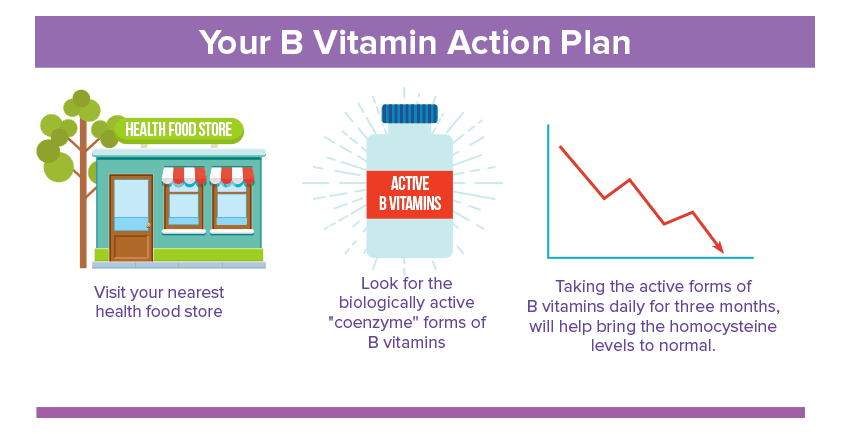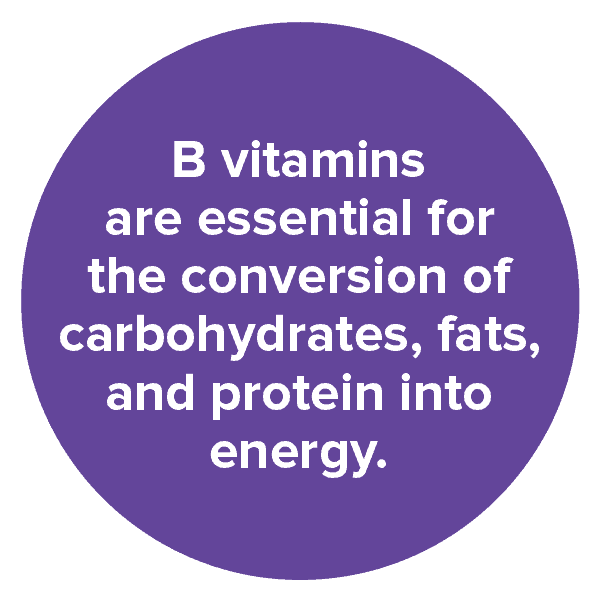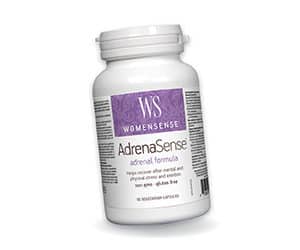
DURING A RECENT LECTURE SERIES I WAS ASKED ABOUT B VITAMINS AND I SHARED A STORY ABOUT A PATIENT, NAMED ANNE.
When Anne, a busy lawyer, turned 50 she made an appointment for a check-up with her family doctor for the first time in several years. The physical exam and blood work all came back normal except for one thing, her homocysteine levels were particularly elevated. When Anne inquired, her doctor explained that homocysteine is a risk factor for heart disease, that there was no prescription medication to treat it, and that she should not worry as her cholesterol levels were normal.
Since heart disease ran in Anne’s family, she felt uncomfortable knowing that she had a risk factor for heart attack and stroke. She did not want to leave it untreated, so she began some research. Anne learned that most people who have high homocysteine don’t get enough folic acid, vitamin B6, or vitamin B12 in their diet, and that supplementing with these nutrients helps bring homocysteine levels down. So, she visited a nearby health food store and purchased a B complex which she took faithfully for three months before repeating the blood work. When the results came back Anne was dismayed and confused that her homocysteine levels had not come down, in fact they had gone up slightly!
Still concerned about her health, Anne went to see a colleague of mine who is a naturopathic doctor (ND). The ND explained to her that standard B complexes and even B vitamins in food are in forms that require activation by the liver. Roughly 30% of the population, however, are genetically unable to process B vitamins – especially folic acid – in their natural state and this can impact many aspects of health over time. The ND ran a test of Anne’s DNA and, sure enough, Anne was among those with a genetic inability to benefit from folic acid in its natural state. On the advice of her ND, Anne went back to her local health
food store and purchased one of the newly available complexes that contains B vitamins in biologically active “coenzyme” forms such as 5-MTHF (active folate), methylcobalamin (active B12), and pyridoxal 5-phosphate (active B6). After taking these supplements daily for three months the homocysteine test was done again, and the level was down to normal.

ho·mo·cys·teine
/ˌhōməˈsistēn/
An amino acid that is produced by the human body, usually as a byproduct of consuming meat. Homocysteine is normally converted into other amino acids. An abnormal accumulation of homocysteine, which can be measured in the blood, can be a marker for the development of heart disease.
B vitamins are essential for the conversion of carbohydrates, fats, and protein into energy. They are required daily as they are easily depleted by stress, poor diet, alcohol, and smoking. B vitamins are water-soluble nutrients vital for healthy tissues and blood cell formation, for the synthesis of brain chemicals which support mood, nerves, and sleep as well as for maintaining heathy levels of cholesterol, blood sugar, and homocysteine. However, not everyone can benefit from B vitamins equally. Genetic, environmental factors, and some medications can interfere with our ability to convert these important nutrients into their active forms. Fortunately, pre-converted individual B vitamins and B complexes are now on the market.
A select few multivitamin and mineral combinations are also available that contain active B in place of standard forms. Ask at your local health food store if they carry
pre-converted coenzyme B formulas.















